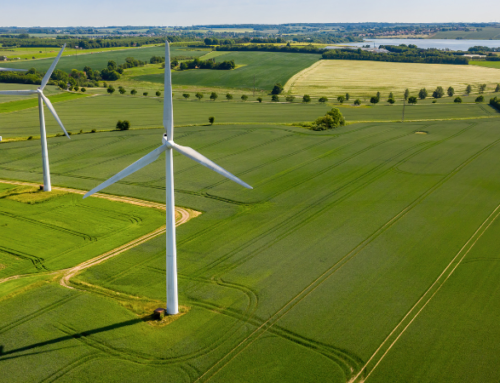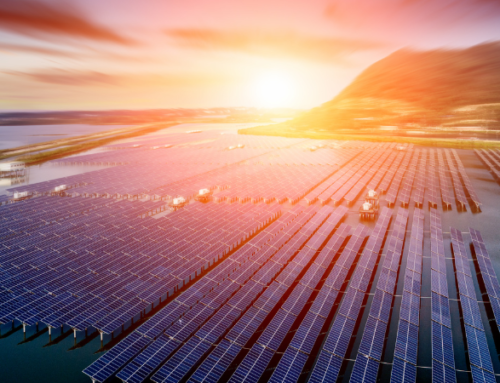The debate over whether to lock in energy rates has been a heated one among energy market experts for many years. Some argue that floating your natural gas electricity rates on the energy index market will beat any sort of fixed-rate energy contract available in the long run. And while the data over the last decade and a half might support that, there is a great deal of risk associated with floating the index market. Others swear by long-term, fixed-rate contracts that allow for budget certainty and planning. And there’s an entire school of experts who argue that a hybrid blend of these two products is the most responsible way to manage energy costs.
This article outlines the differences between index, fixed, and hybrid energy products when to lock in your energy rates, and what types of customers can benefit from playing the market.
What Does It Mean To Lock In Energy Rates?
Now, you might be asking yourself, “What is locking in a power rate?”. Great question! It does seem intriguing that you can fix your electricity costs for a long period of time when electricity prices change daily. In order to fully understand how retail energy suppliers are able to offer fixed energy rates, one must comprehend the energy futures market.
In the world of finance, futures markets exist so that two counterparties can agree upon a certain price for a long period of time without having to worry about the fluctuations of daily market prices. Take a food manufacturer that relies heavily on sugar to make a product. It would be very difficult to sell a finished product at a stable price if the cost of sugar is constantly changing. So, the manufacturer might enter into a futures contract with a sugar supplier in order to fix the cost of sugar for a long period of time.
The electricity market is no different. Because electricity futures trade nearly ten years into the future, retail energy suppliers are able to purchase energy on your behalf for an extended period of time. They then, in turn, sell that same electricity to you for a predetermined fixed price.
Why Lock In Energy Rates?
There are many benefits to locking in energy rates for your business or your home. If you run a business that relies on having stable and predictable fixed costs, then you will benefit from a fixed energy rate. Most businesses that consider energy as a fixed cost on their income statement elect to enroll in a fixed-rate energy plan. Some of those types of businesses include:
- Restaurants
- Hotels
- Gyms
- Commercial Buildings
- Retail Stores
And, there are many benefits to fixing your energy rates:
- Budget certainty: Know what you will pay for each unit of energy used ahead of time
- Risk aversion: Eliminate the risk of volatile energy markets by locking in your energy prices
- Lock-in low rates: Take advantage of low times of the market by locking in long-term energy rates.
Choosing A Non-Fixed Energy Rate
On the other hand, there are certain businesses that elect to purchase electricity and natural gas rates from the index market and do not benefit from a fixed rate. Typically, these businesses treat energy expenses as a cost of goods sold on their income statement. Industries that pass on the cost of energy to their customers or in the price of their product, typically choose a market-based rate. Some of those types of businesses include:
- Oil refineries
- Liquified natural gas plants
- Manufacturing
- Cold storage
Can I Switch From Index To Fixed In The Middle Of A Contract?
Yes! If you first decide to enroll in an index-based energy plan but decide that a fixed-rate suits your needs better, you can always roll your contract into a fixed rate. However, if you signed a fixed-rate contract, it can be quite difficult to unwind that agreement and turn it into a market-based agreement. Often, there are early termination penalties associated with breaking a fixed-rate energy contract. You may, however, be able to negotiate a blend and extend the contract with your existing supplier that allows you to change the rate and type of agreement. You should consult with an energy broker for guidance before exploring this option.
When Should I Lock In Energy Rates?
Many customers ask us when energy rates are the lowest, and what month should they lock in an energy rate. The short answer is: when the market is low! Energy markets have experienced lots of volatility recently. Between the European energy crisis, the Russia-Ukraine effect on energy prices, and domestic supply issues, the energy market has seen highs and lows over the last two years.
Historically, energy prices are low during periods of low demand such as the Fall and Spring, and higher during peak Winter and Summer months. As the markets change and evolve with increased LNG exports, electricity generation through natural gas, and foreign reliance on U.S. gas, these trends are slowly fading. It’s best to consult with your energy broker expert on when to lock in a rate, and how long to contract with an energy provider.
Need Help Navigating Your Next Fixed-Rate Energy Contract?
In conclusion, there are many benefits to locking in an energy price for your business. Our team of energy market experts can advise you on energy market price trends, the different types of fixed-rate contracts available, and how long to fix your energy rates. Contact us today to explore your options.



